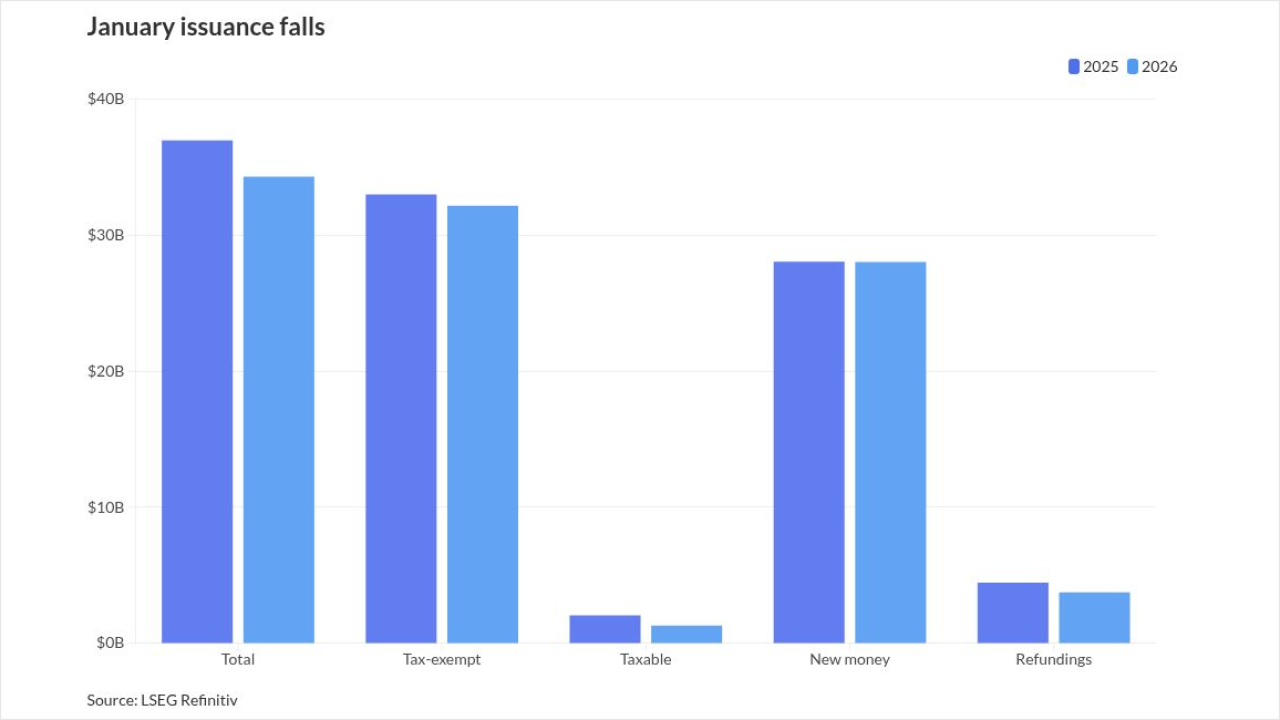The Municipal Securities Rulemaking Board's proposed amendments to Rule G-32 on primary offering disclosures, which would alter the timing and submission of data on Form G-32, are being welcomed by market participants for its efforts in streamlining the submission process and bringing NIIDS-eligible and non-NIIDS eligible transactions under one submission timeline.
Underwriters welcomed the proposed changes, saying it would be helpful from a compliance standpoint without compromising investor protections.
For New Issue Information Dissemination Service-eligible transactions, Rule G-32 requires the submission of certain data on Form G-32 no later than two business hours after the time of formal award, with the other data for NIIDS-eligible transactions may be submitted by the end of the date of first execution and/or finished by date of closing.
For primary offerings ineligible for NIIDS, underwriters are required to initiate the submission of such information on EMMA by the end of the date of first execution and complete the submission by its date of closing. Under the proposed amendments, both NIIDS eligible and non-NIIDS eligible primary offerings would be required to initiate certain data on Form G-32 prior to the end of the first execution and complete any applicable data submission by the end of the date of closing.
"The amendments proposed in the notice would streamline the data submission process by providing a single data submission schedule for both NIIDS-eligible and non-NIIDS transactions," said Michael Decker, senior vice president of research and public policy for the Bond Dealers of America, in a comment letter. "Under the notice, underwriters would be required to make certain data submissions by the end of the first day of trading with the rest of the data items submitted by the closing date."
"BDA generally supports the amendments in the notice. We believe these changes would provide additional compliance flexibility for underwriters without threatening investor or issuer protections. We generally agree with the MSRB's assessment that 'the aggregate costs resulting from the draft amendments would be relatively minor, while the aggregate benefits resulting from the draft amendments would exceed such aggregate costs, mostly in the form of reduced compliance burdens for underwriters'," the BDA letter said.

Under the proposed amendments, an underwriter would fulfill the obligation to initiate Form G-32 by creating the form in EMMA Dataport and populate it with the applicable information. They would then not be required to submit the completed form until the end of the closing day, thus creating common submission guidelines for all new issuances, and according to the MSRB, would alleviate burdens on underwriters.
Decker noted that in the proposed amendments, underwriters would remain in compliance with Rule G-32 if they continue to make data submissions as required under the current Rule G-32 and that after these changes go into effect, dealers would not need to amend their Rule G-32 compliance procedures and practices to comply with the new amendments. The MSRB informally told BDA this, Decker said, but he also asked that the MSRB provide a formal statement to this affect.
"We believe they will provide additional compliance flexibility to underwriters while maintaining the protections embodied in Rule G-32," Decker said in his letter.
Other commenters wondered about the nature of providing PDF files into EMMA's Dataport and whether there can be room for other formats for submission.
"We believe that issuers and users of municipal securities data would benefit is issuers had the option to submit continuing disclosure documents in machine readable Inline XBRL format," said Campbell Pryde, president and CEO of XBRL US. "As noted on page 40 of the EMMA Dataport Manual for Primary Market Submissions, issuers today are required to submit these reports in PDF format. While PDF files are electronic documents, they do not provide digitized data that can be automatically consumed. Continuing disclosure submissions include event-based and financial disclosures which would be significantly more valuable provided in fully searchable, machine-readable format."
Underwriters and others tasked with providing such information may appreciate the flexibility and ability to partially automate their filing activity, Pryde said, as the Inline XBRL format would render the data in both human-readable and machine-readable format.
"Uploaded documents could be validated against an XBRL taxonomy that could enforce the rules now implemented through the web interface," Pryde said. "While validating, MSRB could also check CUSIPs in the file against the global CUSIP master, as you now do in the web interface."
"Because we are suggesting a machine-readable file-based submission as optional, filers should not find this proposal objectionable," Pryde concluded. "They would be free to continue submitting disclosure documents in PDF but would have the option to submit in Inline XBRL format."





